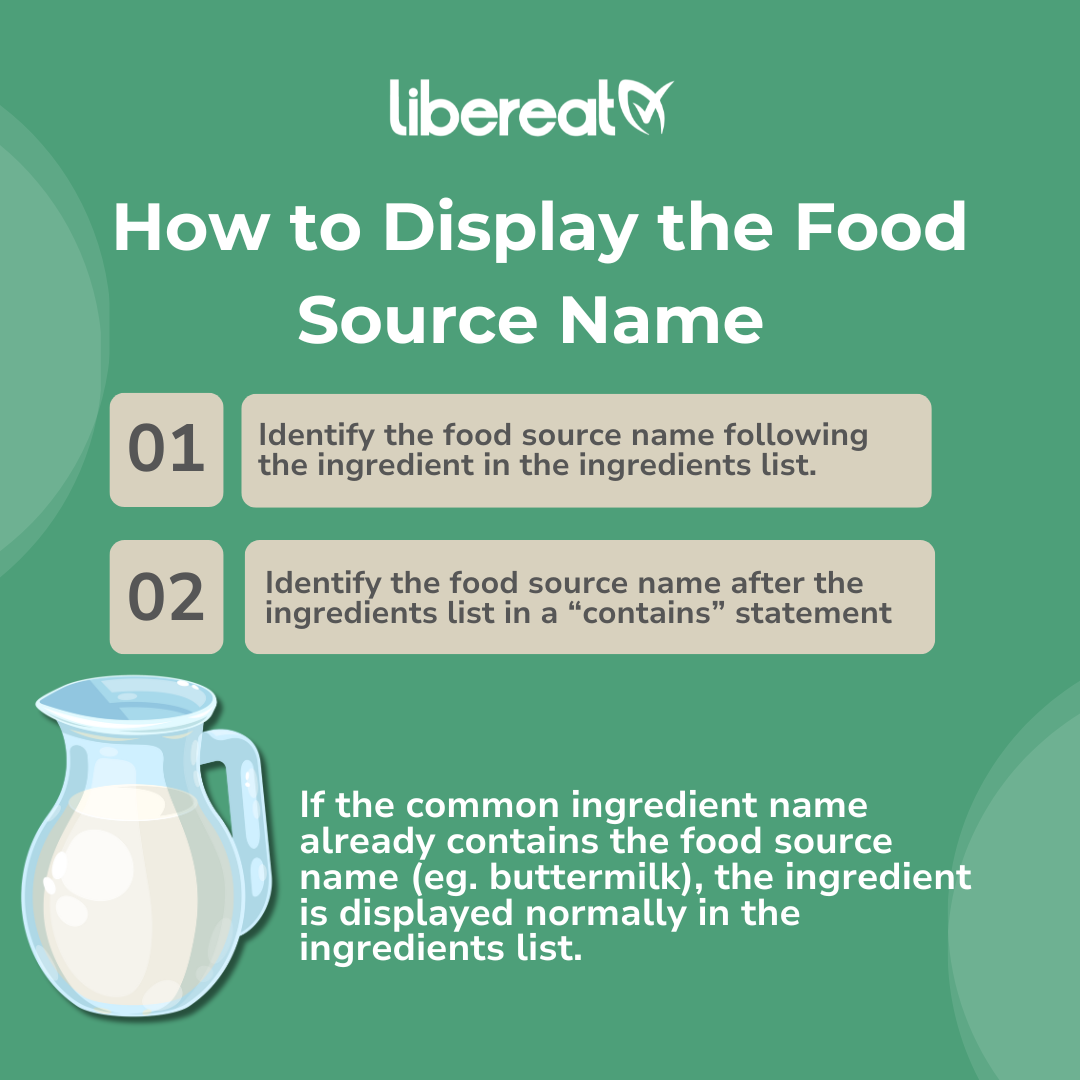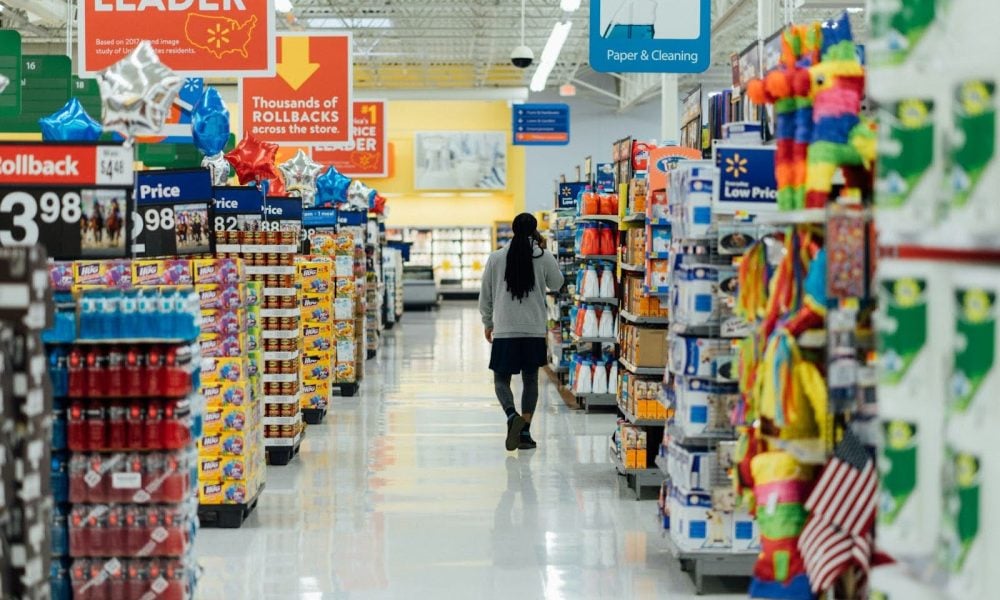With an estimated 33 million people in the U.S. living with food allergies and nearly half of those experiencing a severe allergic reaction at some point in their lives, the 2004 Food Allergen Labeling and Consumer Protection Act (FALCPA) introduced eight major allergens, increased to nine with the introduction of Sesame by the FASTER Act in 2023. These are known as the ‘Big Nine Allergens’, and are identified as causing the majority of allergic reactions among the public in the United States.
The Act established new food labeling requirements to help consumers make more informed purchasing decisions and avoid potentially life-threatening allergenic foods. Declaring the nine major allergens on food labels is a legal requirement for businesses selling foods that contain these allergens.
Knowing what allergen information Food Business Operators (FBOs) must include on allergen labels in the US is essential. In this article, we’ll discuss the major allergens, the role of the Food and Drug Administration, and how LiberEat’s food safety technology can assist your allergen management procedures.
Which Agency Regulates Food Safety and Labeling in the US?

The FDA regulates mandatory food labeling. It has jurisdiction over the majority of foods sold in the US, apart from certain meat, egg, and poultry products, which are controlled by the United States Department of Agriculture (USDA). The FDA’s role is to ensure the public’s health by removing products that may be deceptive or present a risk of injury to consumers and enforcing relevant food safety legislation, such as FALCPA.
Minimizing the risk of allergic reactions is a high priority for the FDA.
Consumers can’t predict the severity of an allergic reaction. It can potentially be fatal due to the risk of anaphylaxis, which often leads to choking due to swelling of the throat and tongue, restricting airways.
The Food Allergen Labeling and Consumer Protection Act introduced eight major allergens, with sesame introduced on January 1, 2023, through the Food Allergy Safety Treatment Education and Research Act (FASTER). They are collectively known as the Big Nine Allergens:
- Crustacean shellfish
- Wheat
- Soybean
- Fish, referring to finned fish
- Milk
- Tree nuts
- Eggs
- Peanut
- Sesame
Under the FALCPA and FASTER Act, businesses must identify the source name of allergenic food on food packaging and dietary supplements. Allergens can be displayed following the ingredient’s name in the ingredients list or after the ingredients list in a “contains” statement.

Products such as canned goods have a long shelf life and may date before 2023; therefore, sesame would not be declared alongside other present allergens. These products do not need to be recalled, so it’s best for consumers to always clearly check the entire product label before purchasing.
While not legally required by the FDA, businesses are encouraged to use precautionary allergen labeling, known as “may contain” statements, to highlight when major allergens may be unintentionally present in a product due to cross-contact. Cross-contact risk is always present if foods containing different major allergens are produced in the same facility.
The Role of Precautionary Allergen Labelling (PAL)
The FDA recommends but does not require Precautionary Allergen Labeling (PAL) statements, such as ‘may contain’ warnings. PAL helps inform consumers about potential cross-contact allergens. While voluntary, implementing PAL effectively can help businesses proactively manage allergen risks—another way LiberEat’s allergen error detection can add value by identifying cross-contact risks before they reach product labels.
The Role of the FDA In Food Recalls
To ensure products are properly labeled, the FDA is known to conduct inspections and sampling to ensure that major allergens are correctly labeled on products and that facilities have correct processes to minimize cross-contact risk.
If businesses do not comply with FALCPA labeling requirements, federal code 21 CFR 7 outlines procedures for the FDA to issue food recalls. These are carried out when a food product is mislabeled, presents a health risk due to contamination, or has caused an illness outbreak.
Recalls are typically carried out voluntarily by the food manufacturer in question. However, the FDA can also issue mandatory recalls due to the authority given to them by Section 423 of the Food Drugs and Cosmetic Act, added by section 206 of the Food Safety Modernization Act on January 4th, 2011.
Mandatory recalls are undertaken when the manufacturer does not willingly undertake a recall. The FDA must also believe there is a reasonable probability the product in question is adulterated and that there is a reasonable probability that the product will lead to serious health risks to humans and animals, commonly referred to as SAHCODHA (Serious Adverse Health Consequences or Death to Humans or Animals).
Food Industry recalls can be time-consuming and costly for businesses and can result in a negative reputation since the FDA publicly announces recalls on its website and social media page. You can read more about the consequences and causes of food recalls on our dedicated Food Recalls page.
Overall, the FDA plays a critical role in food safety in the US due to its jurisdiction over the Big Nine Allergens and its role in enforcing various food safety regulations and standards. You can learn more about US allergens on our dedicated page, and you can learn more about UK major allergens here.
For businesses looking to upgrade their food safety processes and ensure that all food labeling legislation is adhered to, LiberEat’s food safety technology can help.
Differences Between FDA and USDA Jurisdictions
While the FDA regulates most food products, the USDA oversees allergen labeling for meat, poultry, and egg products. LiberEat’s technology aids compliance across regulatory bodies, offering thorough allergen error detection for complex product lines, from plant-based foods to multi-ingredient meals with USDA-regulated components.
FDA’s Inspection and Enforcement Activities
The FDA conducts regular inspections and sampling to label major allergens correctly. Under federal code 21 CFR 7, the FDA can enforce recalls and penalize non-compliant businesses, particularly under the authority granted by the Food Safety Modernization Act. Businesses implementing LiberEat’s technology gain a layer of security, as the system alerts them to potential labeling errors in real time, helping them meet FDA inspection standards and avoid costly enforcement actions.
The Financial Impact of Recalls and Compliance
The financial impact of non-compliance with allergen labeling requirements is significant. For U.S. businesses, an average recall can exceed $10 million, including product retrieval, investigation, legal fees, and lost sales costs. Preventing these incidents is crucial, and LiberEat’s technology can help businesses maintain accurate allergen data and reduce costly recalls.
LiberEat Allergen Detection Software
LiberEat’s food safety software helps prevent allergen errors in data on supplier specifications, website and app data, food packaging, and menus. This can help protect your customers from the major allergens—find out more about these with our allergen information hub.
Correctly managing and reviewing your allergen data is essential for keeping you and your customers safe and helping you comply with food safety standards.
LiberEat’s technology provides a robust solution to ensure accurate ingredient lists and allergen labels for food businesses. By detecting errors and inconsistencies in data from supplier specifications to consumer packaging, LiberEat reduces the risk of misleading information reaching consumers. This enables businesses to uphold high food safety standards while maintaining consumer trust in their products.
Errors in allergen data can cause potentially devastating allergic reactions and expensive product recalls. Give yourself peace of mind, and take a look at our contact us form to learn more about how LiberEat can help protect your business.

